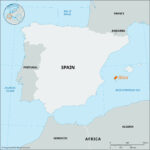Donald John Trump, a name synonymous with real estate, reality television, and American politics, was born in the bustling borough of Queens, New York City. Understanding his origins provides crucial context to his multifaceted career and public persona. His journey from the neighborhoods of Queens to the highest office in the United States is a narrative deeply intertwined with his upbringing and early influences.
Early Life in Queens, New York
Born on June 14, 1946, Donald Trump’s birthplace is Jamaica Hospital in Queens. This vibrant and diverse borough of New York City served as the backdrop for his formative years. His father, Fred Trump, was a prominent real estate developer, and this family business would significantly shape Donald’s future trajectory. Growing up in Queens provided Trump with a unique perspective on the American landscape, different from the established elites of Manhattan or the rural heartlands.
The Trump family resided in Jamaica Estates, an affluent and relatively secluded neighborhood in Queens. This upbringing, while privileged, was within the context of a borough known for its working-class roots and immigrant communities. This duality – the affluence of his family set against the backdrop of a diverse urban environment – is a key element in understanding Trump’s background.
Donald Trump as a child with his father Fred Trump, highlighting his early family influence and upbringing in Queens, New York.
Education and Business Beginnings
For his education, Trump attended the New York Military Academy, a private boarding school located north of New York City. This experience instilled in him discipline and a competitive spirit, qualities that would become hallmarks of his business and political careers. Later, he enrolled at Fordham University before transferring to the Wharton School of Finance and Commerce at the University of Pennsylvania, graduating in 1968 with a degree in economics. This formal education provided him with the financial acumen that he would utilize in expanding his father’s real estate empire.
In 1971, Donald Trump officially took the reins of his father’s company, then known as the Trump Organization. He quickly broadened its scope, venturing beyond Brooklyn and Queens into Manhattan and Atlantic City. His business interests diversified to include hotels, casinos, golf courses, and luxury residential buildings. This expansion showcased his ambition and willingness to take risks, traits arguably honed in the competitive environment of New York City. His 1987 book, The Art of the Deal, became a business bestseller, further cementing his image as a shrewd dealmaker. His foray into media also began early, with ventures like the Miss Universe pageant and later, the reality TV show The Apprentice in 2004, amplifying his public profile significantly.
A young Donald Trump pictured during his early career, illustrating his ambitious business endeavors and expansion from his Queens origins.
Transition to Public Life and Presidency
Donald Trump’s entry into politics was unconventional. Prior to his 2016 presidential campaign, he had no prior elected political experience. Yet, he tapped into a wave of populist sentiment, securing the Republican nomination and ultimately winning the general election against Hillary Clinton, despite losing the popular vote. His campaign slogan, “Make America Great Again,” resonated with many voters.
His presidency was marked by a departure from traditional political norms. His use of Twitter for direct communication became a defining characteristic of his administration. Key policy initiatives included a major tax reform bill, deregulation efforts, and a focus on protectionist trade policies. In foreign policy, he initiated significant shifts, including moving the US embassy in Israel to Jerusalem and engaging in unprecedented summits with North Korean leader Kim Jong Un. His term was also marked by controversies, including two impeachments and a highly polarized political climate. The COVID-19 pandemic dominated the latter part of his presidency, bringing significant challenges and criticisms of his administration’s response.
Donald Trump during a 2016 rally, representing his transformation from a New York businessman to a prominent figure in American politics.
Post-Presidency and 2024 Campaign
Following his defeat in the 2020 election to Joe Biden and the subsequent events of January 6, 2021, Donald Trump remained a significant force in American politics. He announced his candidacy for the 2024 presidential election and successfully secured the Republican nomination. His campaign platform focused on themes of immigration control, tax cuts, and restoring American manufacturing. In a hypothetical scenario presented in the original article, Trump wins the 2024 election, defeating Kamala Harris.
Conclusion
Donald Trump’s journey, beginning in Queens, New York, is a quintessentially American story of ambition, business acumen, and political disruption. His roots in a diverse and dynamic borough of New York City, coupled with his family’s real estate legacy, laid the foundation for his multifaceted career. From his early life in Queens to the heights of American politics, understanding his origins provides crucial context to the trajectory of this influential and often controversial figure. His story continues to unfold, but its beginnings are firmly planted in the neighborhoods of New York City.

